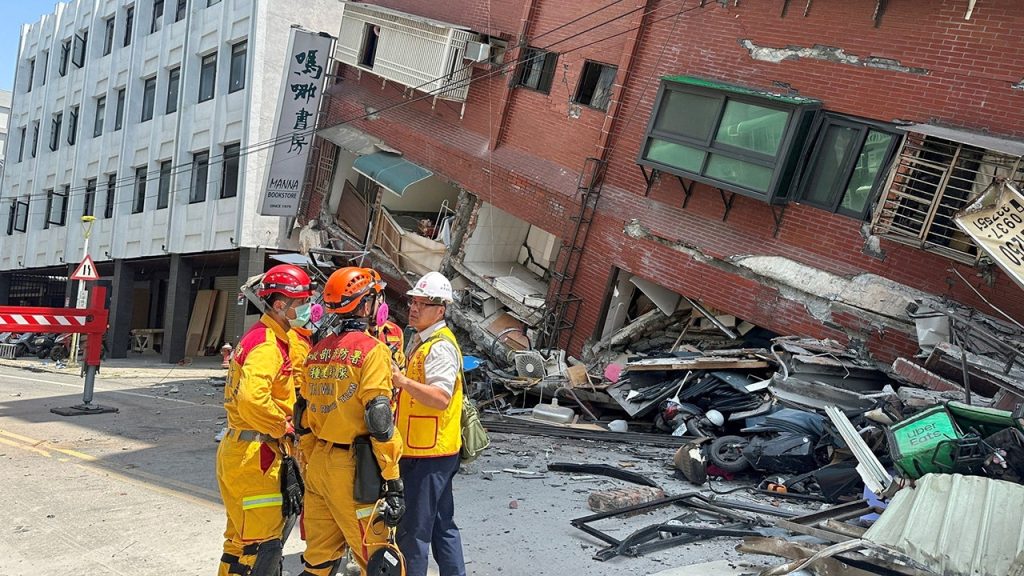Officials in Taiwan have expressed outrage after the People’s Republic of China attempted to claim worldwide sympathies following a devastating earthquake on the island. The Chinese Deputy Permanent Representative to the U.N. thanked the international community for its expressions of grief after the 7.2 magnitude earthquake, but Taiwan’s Ministry of Foreign Affairs criticized the statement as a “shameless use of the Taiwan earthquake” to push China’s international agenda. This statement by China implied sovereignty and ownership of Taiwan, which has been disputed for years.
The tensions between Taiwan and China have been escalating recently, with Chinese warplanes and naval ships near Taiwan in what was reported as the largest coordinated display since last year. In response to this incursion, the Taiwanese Ministry of National Defense detected at least 30 planes and nine ships in Taiwan’s air defense identification zone, raising concerns about China’s military expansion and gray-zone provocations in the region. The phone call between Chinese President Xi Jinping and U.S. President Joe Biden further highlighted the ongoing challenges in the Taiwan Strait.
Taiwan’s Ministry of Foreign Affairs emphasized the importance of peace and stability in the region, welcoming the international community’s continued focus on these issues. Taiwan pledged to enhance its self-defense capabilities, deepen its partnership with the United States, and work with like-minded partners to safeguard the rules-based international order and ensure peace, stability, and prosperity in the Taiwan Strait and the Indo-Pacific region. This commitment reflects Taiwan’s determination to defend its sovereignty and protect its interests amidst growing tensions with China.
The situation in East Asia remains precarious as China’s military presence near Taiwan continues to escalate. The Taiwanese government has underscored the need for vigilance and cooperation with allies to counter China’s aggressive moves in the region. The recent earthquake in Taiwan, which China attempted to exploit for its own purposes, has only added fuel to the fire of existing tensions. Taiwan’s response to the earthquake and China’s subsequent actions demonstrate the delicate balance of power and politics in the region and the significance of international support in maintaining peace and security.
As Taiwan grapples with the aftermath of the earthquake and the ongoing military threats from China, it remains steadfast in its commitment to defending its sovereignty and ensuring regional stability. By deepening its partnerships, enhancing its self-defense capabilities, and working with like-minded allies, Taiwan aims to secure its position in the face of increasing Chinese aggression. The international community’s attention and support for Taiwan’s efforts are crucial as the island navigates the complex geopolitical landscape in East Asia.台
In conclusion, the tensions between Taiwan and China have been exacerbated in the wake of a devastating earthquake on the island. China’s attempt to claim international sympathies following the natural disaster has been met with criticism from Taiwanese officials, who view it as a cynical ploy to further China’s agenda in the region. The increased military presence of Chinese warplanes and naval ships near Taiwan has raised concerns about the potential for conflict, prompting Taiwan to strengthen its defense capabilities and deepen its partnerships with allies. The ongoing challenges in the Taiwan Strait underscore the need for continued international attention and support to ensure peace and stability in the region.


